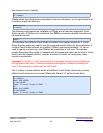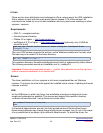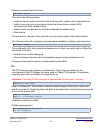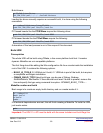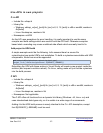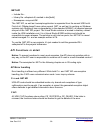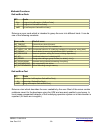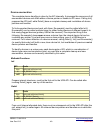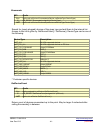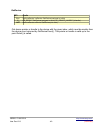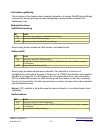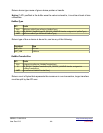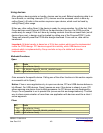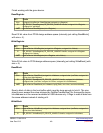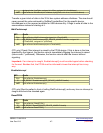
Device enumeration
The complete device handling is done by the API internally. It manages the resources of all
enumerated devices and offers either a device pointer or handle to API users. Calling Init()
prepares the API itself, while DeInit() does a complete cleanup and invalidates all device
pointers and handles.
To find supported devices and work with them, Enumerate() must be called after Init().
Enumerate() can be called multiple times for either finding devices of different types or to
find newly plugged devices (primary USB at the moment). One important thing is the
following: Enumerate() does never remove a device from the internal device list and so
invalidate any pointer, it just add new ones or does nothing, even if a USB device is
removed. For a clean detection of a device removal, calling DeInit(), Init() and Enumerate()
(in exactly that order) will build a new, clean device list, but invalidates all previous created
device pointers and handles.
To identify devices in a unique way, each device gets a UID, which is a combination of
device type name and connection point, so even after a complete cleanup and new
enumeration, devices can be exactly identified by this value.
Methods/Functions
Init
API Code
C++ static void ceDevice::Init()
C CE_RESULT Init()
.NET static void ceDevice.Init()
Prepare internal structures, must be the first call to the UDK API. Can be called after
invoking DeInit() again, see top of this section.
DeInit
API Code
C++ static void ceDevice::DeInit()
C CE_RESULT DeInit()
.NET static void ceDevice.DeInit()
Free up all internal allocated data, there must no subsequent call to the UDK API after this
call, except Init() is called again. All retrieved device pointers and handles are invalid after
this point.
USBS6 / C1030-5510 http://www.cesys.com/
User Doc V0.3 -40- preliminary



